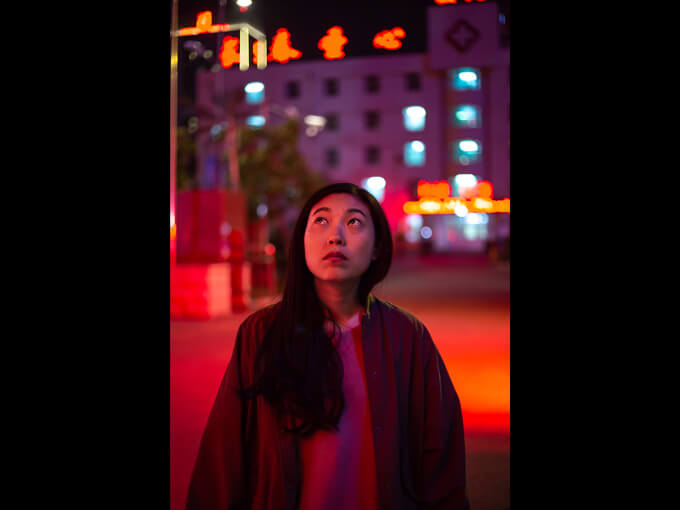Sep 19, 2019 Film & TV
Turns out there’s an appetite for good movies about communities Hollywood has previously had little time for.
America did not invent comics, or even — depending on how you feel about Tintin, Moebius, or Japanese manga — perfect them. But America gave the world Calvin and Hobbes, Dykes To Watch Out For, Carl Barks’ Scrooge McDuck, and a bazillion other comics I adore. That’s why it has always struck me as profoundly bizarre that American movie-going audiences will run a mile if you ask them to deal with subtitles. Images combined with text: apparently this is mainstream fare on a page, but indigestible elitism on a screen. If there’s a breakout French thriller cleaning up at the international box office, you can count on Hollywood to remake it, safe in the knowledge that the heartland audience won’t have seen the original. They’ll probably cast Liam Neeson.
This is the context to keep in mind when considering the following: in a year that’s seen a string of well-reviewed indie comedy-dramas fail to catch fire with audiences (Late Night, Booksmart), only one film has pulled off a better per-screen American box office average than Avengers: Endgame. That film is The Farewell, a story about a Chinese-American woman dealing with the imminent death of her beloved grandmother, and it’s mostly in subtitled Mandarin. Awkwafina plays Billi, a not-quite-making-it New York artist whose family moved to America from China when she was a girl. You may remember Awkwafina: she played the cheeky best friend in last year’s comedy hit Crazy Rich Asians.
There are a couple of things to note around this. First, the trajectory from scene-stealing romcom best friend last year to lead character this year used to be a common one, but that was back in the 20th century, when Hollywood still made romcoms on a regular basis. Second, even when it was a thing that happened all the time, it didn’t happen to Asian-Americans. Because, obviously, it could happen only if there were two years in a row where an Asian-American got cast in a hit film, and, obviously, there was little danger of that in the 20th century.
Representation seems like such an obvious, easy issue to get your head around: if there’s no one on your country’s screens who looks like you, you’re by definition excluded from part of your own culture. If stardom is one measure of cultural power, then exclusion from the screen tells you you’re powerless. And for these reasons — this is the part it’s hard to fathom dollar-hungry Hollywood execs continually failing to grasp — when studios make good movies about previously excluded communities, it will turn out there’s an appetite for them, and those studios will make a lot of money. (Exhibit A: Black Panther, with its $1.3 billion global gross).
Since the Hollywood definition of “excluded communities” has tended to extend as far as “all women everywhere”, it’s in one sense not surprising that we’re only now seeing the dawn of mainstream Asian-American cinema. In another sense, it’s mind-boggling. The Farewell is not a challenging or mould-breaking story in most respects; it’s an easy film to watch and an easy film to like. But both its humour and its bite come from an intra-familial yet international culture clash. This look inside the experience of non-white, non-English-speaking Americans means it would not have been made even five years ago.“Based on an actual lie,” says the pre-titles text. A laugh rippled through my audience: what a nice bit of whimsy. Fast-forward to the scene where Billi has gone against her parents’ wishes by travelling to Changchun, the large Chinese city where her grandmother lives, and her uncle is giving her a stern talking-to. The subject of the lecture is also the reason her parents didn’t want her at this gathering: in China, it’s common for terminally ill people not to be told they’re dying.
Billi’s grandmother, Nai Nai, believes the international family members have flown in for the wedding of a cousin. In reality, the wedding has been put on maximum fast-forward — somewhat to the bewilderment of the non-Mandarin-speaking bride — so that everyone can see Nai Nai one last time. Billi’s parents don’t believe she will manage to keep the secret, and her uncle wants her to understand that she has to. This actually happened to Lulu Wang, the film’s writer-director. Not so whimsical, then.
The best scenes in the film are not the ones where family members wrangle over the strengths and weaknesses of their adopted countries versus their country of origin, although these are funny and trenchant and — in these days when American films tend to walk on eggshells to avoid being excluded from the vast Chinese market by its censors — unexpectedly frank. The best scenes are the ones where everyone is being the opposite of frank, so that you need to ask yourself, is Nai Nai actually falling for this? Is Billi about to spill the beans? Should she spill the beans? It’s a plum role for Awkwafina (who has now been cast, in our era’s ultimate sign of a star on the rise, in an upcoming Marvel movie): without ever falling into melodramatic excess, she achieves a richness of nonverbal expression that’s a pleasure to watch.
Her relatives, any of whom could have ended up seeming very thinly characterised given their relative paucity of dialogue, are equally good at saying a lot while not saying much. The film’s strength is its ability to articulate a range of mutually exclusive opinions, all of them grounded in deep and difficult emotion, without ever becoming strident. Its characters are easy to empathise with, and — with the exception of Nai Nai, who’s bubbly, lovable, but perhaps deeper than she seems — they’re easy to read. Perhaps that’s why American audiences agreed to read the subtitles.
This piece originally appeared in the September-October 2019 issue of Metro magazine, with the headline “Found in translation”.






